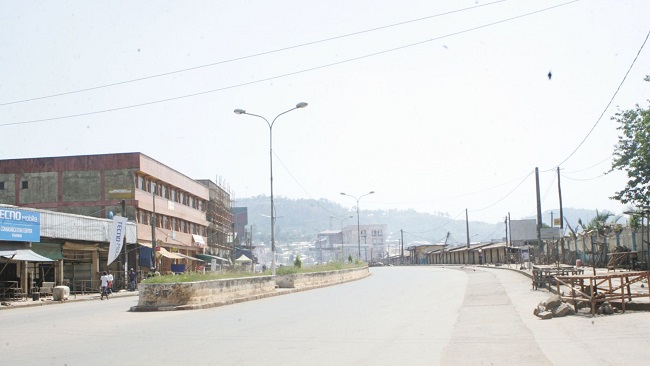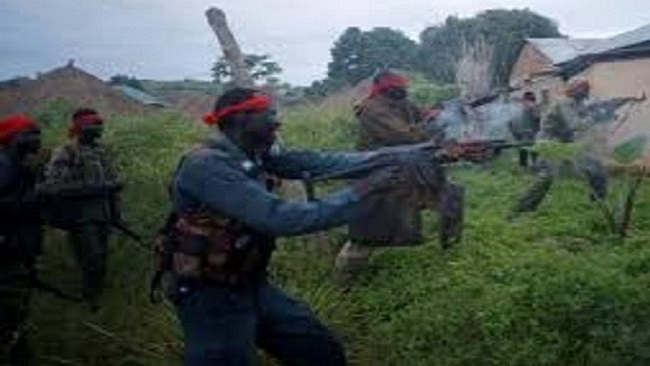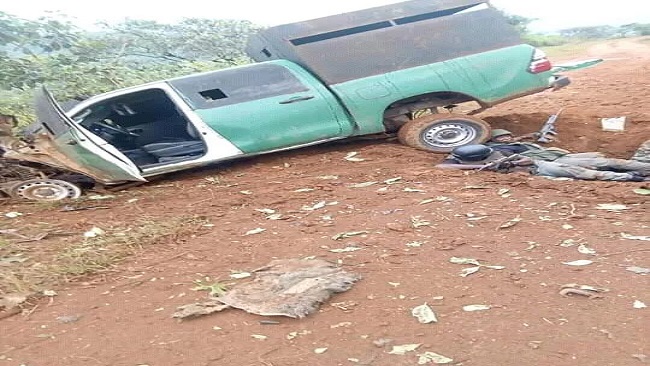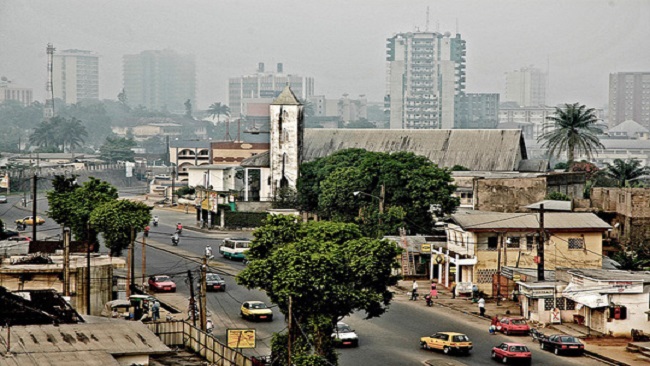12, April 2022
BIR soldiers arrest over dozen Southern Cameroonians in Bamenda 0
Soldiers of the Rapid Intervention Battalion have arrested at least 12 Southern Cameroonians during overnight raids across Bamenda, the chief city in the North West region.
Our correspondent in Bamenda citing security and local sources reported on Monday that Cameroon government forces had rounded up the Southern Cameroonians mainly in Bamenda and nearby towns, including Bali and Batibo, overnight on Sunday.
The troops loyal to the Biya Francophone Beti Ewondo regime in Yaoundé also detained a Southern Cameroonian at Tjunction and some others at Below Foncha Street in Bamenda.
The Francophone soldiers also searched and vandalized the family house of several of the Southern Cameroonians before detaining them.
According Ambazonia Interim Government sources, the French Cameroun army raids, which occur mostly in areas under the full control of Biya regime forces, are conducted arbitrarily and with no search warrant.
By Fon Lawrence in Bamenda


























12, April 2022
Southern Cameroons Crisis: The government must implement real appeasement measures 0
The crisis in Southern Cameroons seems to be cooling off but beyond the surface, there are lots of things still happening and another explosion of tensions is a possibility.
The consequences of the conflict are all over the place. The trust that used to be the population’s hallmark has simply evaporated given the atrocities that have taken place in the two English-speaking regions of the country.
Many children in rural parts of Southern Cameroons are still not going to school and this is creating a serious problem that will haunt the country in the future.
The crisis which started with protests by teachers and lawyers in 2016, has robbed the two English-speaking regions of the country of much-needed economic development, as many investors have simply fled the region with their investments.
Many Southern Cameroonians are now investing in East Cameroon as the war has proven that instability is not friendly with economic prosperity. Where violence exists, economic prosperity simply walks away, leaving the population in abject poverty.
The relocation of businesses has worsened the unemployment situation in the two English-speaking regions of the country and unemployment has a way of generating hardship and producing hardened criminals.
Though government soldiers and separatists fighters still sometimes engage in excesses, the killing has reduced, and movement from one major town to the other is gradually improving.
Live is gradually returning to towns such as Kumba, Buea, Bamenda, Tiko and Limbe, but this does not imply that the issues which triggered the crisis have been addressed by the government.
The Yaoundé government has the nasty habit of leaving things to time but time might never address the grievances of Southern Cameroonians who hold that they have been victims of marginalization and other forms of injustice.
If the violence that has hit the two regions like a ton of bricks must remain a thing of the past, the Yaoundé government must take certain appeasement measures which should help to prevent future conflicts.
One of such measures must be the institution of constant, frank and fruitful dialogue which will help the government and the local communities to address issues in a timely manner so as to preempt any future misunderstanding.
In this regard, a standing committee should be set up to monitor things to ensure that any issues that might disrupt the peace are nipped in the bud.
Similarly, corruption and centralization which are also to blame for much of the chaos that has played out in the country’s two English-speaking regions must be dealt with in a determined and persistent manner.
Corruption is a major issue in Cameroon and this cancer is hurting many Cameroonians. While most Cameroonians are complaining and collapsing under the weight of corruption, a few well-placed officials loyal to the ruling party have transformed the country’s treasury into their personal ATM or piggy bank.
Corruption is very expensive and if not checked, could result in a country’s economic failure or political collapse. Corruption aggravates a people economic pain and could build a lot of pressure in the country; pressure which might result in political conflict, especially in a political context wherein one person makes all the decisions and holds onto power even when things are falling apart.
Also, centralization, which has been the bane of the population’s existence for decades, needs to be carefully examined.
Currents efforts by the government at implementing a failed decentralization plan have only generated more frustration, especially as government efforts are being viewed by the population as the government’s attempt to perpetuate the ruling party’s agenda and existence in power.
Decentralization as defined by the current government will not douse the fire in many Southern Cameroonian minds.
Anything short of a full-fledged federal system will only go a long way in perpetuating the frustration and sowing the dangerous seeds of another devastating conflict in the country.
Key to all of these measures will be the release of all Southern Cameroonians arrested because of the conflict, including Sisiku Julius Ayuk Tabe who is clearly the leader of Southern Cameroons.
His release and that of his entourage will send out a strong message that the government is committed to bringing sustainable peace to the region and this might convince the fighters in the bushes to down their weapons.
The Southern Cameroons crisis has sent many Cameroonians to an early grave. The events of the last five years have proven that Cameroon’s peace is fragile and could be breached at any time.
If the Cameroon government has to reduce the country’s fragility, it must take bold new measures which will help to address old grievances and put the country on the path to sustainable peace and prosperity.
By Soter Tarh Agbaw-Ebai and Joachim Arrey